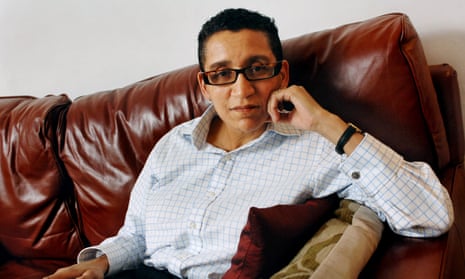Progressive politics has seriously lost its way. When feminists who have spent decades challenging sexism, racism, and homophobia are viewed as a risk to the wellbeing of students, something has gone very wrong indeed. Linda Bellos became the most recent feminist whose invitation to speak was withdrawn for raising questions about the direction in which modern-day gender politics is heading. Bellos, who is responsible for establishing Black History Month in Britain, was uninvited by the Beard Society, a “gender and feminist group” within Cambridge University.
During her address to Peterhouse College, Bellos told organisers she planned to publicly question “some of the trans politics … which seems to assert the power of those who were previously designated male to tell lesbians, and especially lesbian feminists, what to say and what to think”. In response, a representative of the Beard Society responded: “I’m sorry but we’ve decided not to host you. I too believe in freedom of expression, however Peterhouse is as much a home as it is a college. The welfare of our students in this instance has to come first.”
Regardless of your views on gender, Bellos speaking at Cambridge University in no way compromises the welfare of its students. It is ludicrous to claim that someone who has committed her adult life to liberation politics is a risk to the wellbeing of those who listen to her perspective – and deeply insulting. Black, female, Jewish and lesbian feminist, Bellos is not exactly a preacher of hate.
In recent years, gender has become an increasingly explosive subject. If anything, it was brave of Bellos to propose to address this schism between queer and feminist principles when so many seasoned activists shy away from the issue. And there is an issue: that women can’t even question queer gender politics without being viewed as suspect highlights an underlying problem with the ideology behind them. Murray Edwards, a single-sex college at Cambridge, has updated its entry policy to include any prospective student “who at the point of application identifies as a woman”. Single-sex colleges exist to redress the imbalance caused by the exclusion of women from universities. A policy based around self-identification is exploitable – a man could take a university place reserved for a woman by falsely claiming to identify as female – which presents a serious problem. These questions are not raised from cruelty or bigotry, but necessity.
Women must ask questions about gender politics. For hundreds of years, gender has functioned as a hierarchy that puts men at the top and women at the bottom. Gender is the reason one in three women in this world will experience male violence within her lifetime. Gender roles are the pillars of patriarchy. Therefore, challenging gender is a necessary step towards the liberation of women. Yet many women who do question or challenge the way we are now being encouraged to think about gender – as inherent and apolitical, rather than a socially constructed hierarchy – are shut down and branded Terfs.
Terf stands for trans-exclusionary radical feminist. Online, it often it appears alongside violent rhetoric: punch a Terf, stab a Terf, kill a Terf. This language is used to dehumanise women who are critical of gender as part of a political system. Many of the women called Terf are, like Bellos, lesbian. These lesbians are increasingly demonised by the wider LGBT+ community, or ignored in order to avoid the controversy altogether. Repressing these tensions, rather than airing them, only lets the problem grow. Conversations such as the one Bellos would have started, conversations that give breathing space to the difficulties between some lesbians and trans people, are necessary if we are ever to move beyond this painful stalemate.
The tension between radical feminists and queer activists stems from two contradictory ways of defining gender. Queer politics positions gender as an innately held identity. The radical feminist understanding is that gender exists as a political system, not an identity. Recognising gender as innately held, a factor that should be enshrined as a protected characteristic, totally contradicts radical feminist principles. The politics of gender is deeply personal, but that isn’t a reason to shy away from exploring it – quite the opposite.
Like Bellos, I am a radical feminist. There are women within the movement who have seriously overstepped the mark by directing cruelty towards trans people, which I condemn without hesitation. But, like every other radical feminist I know, I want trans people to live lives that are free from abuse, discrimination, and persecution. Irrespective of the difference in how we conceptualise gender, radical feminists want all trans people to be safe from male violence.
And it is overwhelmingly male violence that’s at the root of transphobic abuse – radical feminists believe in naming the agent. Looking at the vitriol directed towards radical feminists, the way in which radical feminist perspectives are treated as poisonous, one could almost be forgiven for imagining that feminist women are responsible for anti-trans violence. However, the overwhelming majority of transphobic attacks are carried out by men. In fact, radical feminism has critiqued and opposed male violence longer and more consistently than any other school of thought. The term “Terf” and the violent rhetoric that often accompanies it only serve to obscure the reality: women and trans people alike are targets of male violence. To make radical feminists the villains is to blame men’s violence on women’s thoughts.
Perhaps Bellos’s words would have been challenging. Perhaps what she said to the students of Cambridge would not have been comfortable or easy to hear. But being made to think difficult thoughts is not the same as being harmed. And a university is the ideal place for complicated ideas to be examined with both rigour and nuance. It’s not only Cambridge students who lose out from talk of gender politics being stifled, but everyone affected by the issues Bellos would have explored.
Comments on this article will be turned on later
